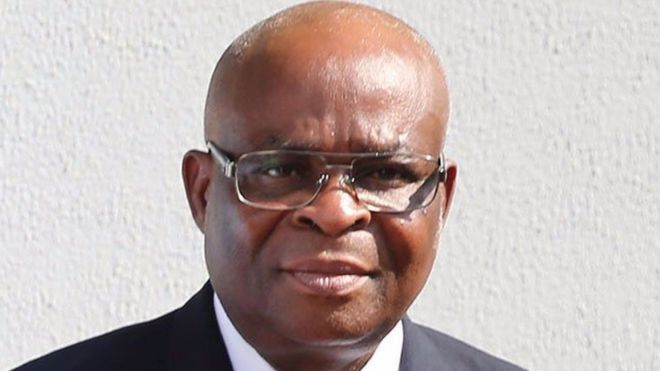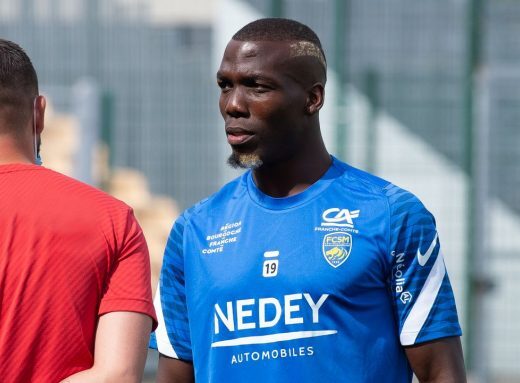
THE National Judicial Council (NJC) may be living on old glory. But they are unlikely to know that they are no longer viewed with the reverence of years past, when they were doted on by nearly everyone, and their every word was regarded with a solemnity that was at once noble and distant. Before the NJC became immersed in avoidable controversies, Nigerians had embraced the culture of tiptoeing around the eminent jurists, scared of rousing their anger. Today, the situation is different, and the jurists themselves may not even know it.
To cap what may amount to many months of difficult judicial diminution, the NJC on Monday issued a statement signed by its spokesman, Soji Oye, indicating that the council took note of the president’s acceptance of the resignation of the former Chief Justice of Nigeria (CJN), Walter Onnoghen, after many months of uncertainty, and thanked him for doing so. Said the NJC: “The NJC held an emergency meeting today (Monday) to take formal note of the acceptance of the voluntary retirement of Hon. Mr. Justice W. S. N. Onnoghen as Chief Justice of Nigeria by President Muhammadu Buhari. The President’s acceptance of the retirement is in line with Council’s recommendation to the President on 3rd April, 2019. Council at the end of its deliberations thanked the President for the acceptance which was in the best interest of Nigeria.”
The NJC is of course at liberty to endorse anyone’s resignation, no matter how controversial or, as in the case of Justice Onnoghen, unwholesome. And as the NJC statement said, a fact also reiterated by the presidency, it is true that the NJC had advocated the compulsory retirement of the former chief justice. But because the presidency was breathing threats and imprecate on Justice Onnoghen in those intransigent days, there were indications that the presidency was ready to meet the former CJN’s stubbornness with a vicious corruption trial of their own. They simply disregarded due process and rode roughshod over the beleaguered jurist.
Even then, the former CJN, who seemed curiously confident that he could best the government on points of law, was still willing to face up to the presidency’s threats, and was in addition willing to meet them and joust with them in the courts, whether the courts were rigged or not, or whether or not the presiding judges could call their souls their own. It was at that point, when things seemed to drag on interminably, and the regularisation of the appointment of the Acting Chief Justice of Nigeria, Ibrahim Muhammad, seemed threatened, that the NJC cut the Gordian knot and asked the government to compulsorily retire Justice Onnoghen. Sensing that all was lost, and with the Court of Appeal developing cold feet over the myriad of cases brought before them by the former CJN hoping to secure some exculpatory reliefs, and knowing for sure that he could not hope to get justice anywhere and anymore, Justice Onnoghen threw in the towel. He knew that at that point things could only get nastier.
The politics behind the presidency relenting over the Onnoghen retirement has not been revealed. Perhaps it is complicated. Perhaps a lot of begging went into the affair to bring it to that ignoble end. Perhaps Justice Onnoghen’s hand was not as strengthened as he and his sympathisers made everyone to believe. Whatever the case, the former CJN retired, the presidency took about two months to make up its mind whether to accept the resignation — a speed unlikely to be connected with the customary gridlock afflicting the government — and the NJC has curiously appreciated the government for burying the hatchet. If this outcome had been etched on an artist’s canvas or portrayed in a novel, it would have been condemned as surreal. But it is real. The NJC is grateful that the presidency took its counsel. Not since the Ayo Salami affair, when the same NJC let its imagination get entangled in boyish fantasies, has the judiciary postured so outlandishly.
The presidency finally relented, just as it is true that the NJC charted a curious way out of the Onnoghen ordeal. But it would have been far better if the NJC had not felt prompted by unknown motives to claim the questionable glory for resolving that judicial and ethical labyrinth and in the same breath extending their gratitude to the presidency. There was nothing to thank the president for. If the retirement of Justice Onnoghen had not been accepted, and the case had dragged on in the courts, it is difficult to see even a conniving Senate ignore the brutal judicial and administrative realities of the day to endorse the appointment of Justice Ibrahim Muhammad. The presidency simply bowed to reality, convinced it could go no further without drawing more flak and fouling the judiciary. The NJC should have kept a dignified silence in a case that unfolded bizarrely before the whole world.
You may be interested

Arteta Provides Injury Updates On Five Arsenal Players Ahead Palace Clash
Webby - December 20, 2024Arsenal manager Mikel Arteta has revealed that Declan Rice and Riccardo Calafiori are both available to be in the Gunners…

Carabao Cup: Spurs Edge Man United In Seven-Goal Thriller To Reach Semi-finals
Webby - December 19, 2024Tottenham Hotspur edged Manchester United 4-3 in the quarter-finals of the Carabao Cup on Thursday.Spurs raced to a 3-0 lead…

Pogba’s Brother Sentenced To Three Years In Prison
Webby - December 19, 2024Mathias Pogba, brother of former Manchester United star Paul Pogba, was sentenced Thursday by a Paris criminal court to three…

















![American Pastor, David Wilson Seen Eating The Box Of Woman Who Isn’t His Wife [Video]](https://onlinenigeria.com/wp-content/uploads/2019/10/american-pastor-david-wilson-seen-eating-the-box-of-woman-who-isnt-his-wife-video-150x150.jpg)








